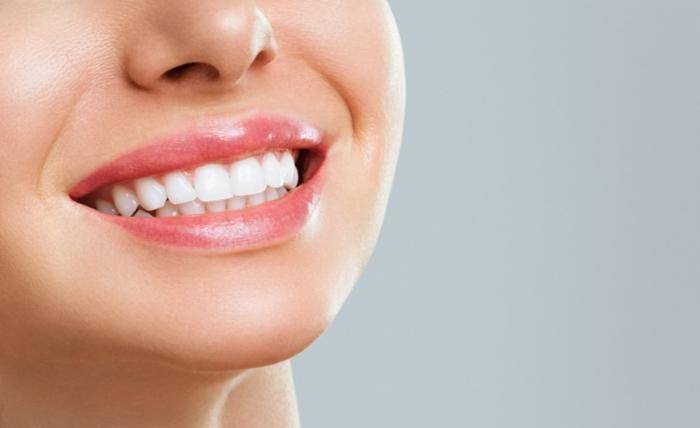A bright, healthy smile does more than just look good—it boosts confidence, improves overall health, and reflects personal hygiene. Achieving great dental health doesn’t necessarily require expensive treatments or complex routines. With consistent care and a few expert tips, anyone can maintain strong teeth and healthy gums for life. This article delves into the essential secrets to keeping your smile bright and your mouth healthy.
Understanding Dental Health
Dental health encompasses more than just the condition of your teeth. It involves gums, tongue, lips, and the overall structure of your mouth. Poor dental hygiene can lead to cavities, gum disease, bad breath, and even more serious conditions like heart disease or diabetes. Understanding the fundamentals of dental care helps prevent these issues and promotes long-term wellness.
Daily Dental Care: The Cornerstone of a Healthy Smile
1. Brushing Techniques
Brushing your teeth is the first line of defense against plaque and cavities. However, it’s not just about brushing—it’s about brushing correctly. Dentists recommend using a soft-bristled toothbrush and fluoride toothpaste. Brush at a 45-degree angle to your gums, moving in gentle circular motions rather than harsh back-and-forth strokes. Brush for at least two minutes, covering all surfaces: front, back, and chewing surfaces. Don’t forget your tongue—it can harbor bacteria that cause bad breath.
2. Flossing
While brushing cleans most surfaces of your teeth, flossing reaches the tight spaces in between where cavities often start. Daily flossing removes food particles and plaque that a toothbrush can’t reach. Take about 18 inches of floss, wind it around your fingers, and gently slide it between your teeth, curving it around each tooth in a C-shape. Consistency is key—skipping flossing even occasionally can allow plaque buildup that leads to gum disease.
3. Mouthwash
Using an antimicrobial or fluoride mouthwash can provide an extra layer of protection. Mouthwash reduces bacteria, strengthens enamel, and helps prevent gum disease. Choose a product that is alcohol-free if you have sensitive tissues, and rinse for 30 seconds after brushing and flossing. Mouthwash should complement, not replace, brushing and flossing.
Nutrition and Dental Health
What you eat directly affects your teeth and gums. A balanced diet rich in vitamins and minerals supports oral health.
- Calcium and Vitamin D: Essential for strong teeth and bones. Sources include dairy products, leafy greens, almonds, and fortified cereals.
- Vitamin C: Supports healthy gums and helps prevent inflammation. Found in citrus fruits, strawberries, and bell peppers.
- Phosphorus: Found in eggs, fish, and lean meat, it helps maintain tooth enamel.
- Limit Sugars and Acids: Sugary snacks and acidic drinks like soda can erode enamel and increase the risk of cavities. If you indulge, rinse your mouth with water afterward to neutralize acids.
Staying hydrated is also important. Water helps wash away food particles, supports saliva production, and prevents dry mouth, which can lead to tooth decay.
Lifestyle Habits That Impact Dental Health
Certain daily habits can significantly affect oral health, positively or negatively.
- Quit Smoking: Tobacco use stains teeth, contributes to gum disease, and increases the risk of oral cancer.
- Limit Alcohol: Excessive alcohol can dry out the mouth and erode enamel.
- Chewing Sugar-Free Gum: Stimulates saliva production, helping neutralize acids and wash away debris.
- Regular Checkups: Visiting your dentist twice a year allows for early detection of problems, professional cleanings, and personalized advice. An attentive dentist can spot subtle issues before they become serious, ensuring your teeth stay healthy and strong.
Advanced Dental Care Tips
For those aiming for optimal oral health, consider integrating these expert recommendations:
1. Electric Toothbrushes
Studies show electric toothbrushes can remove more plaque than manual brushes, especially for hard-to-reach areas. They also reduce the risk of brushing too aggressively, which can wear down enamel and irritate gums.
2. Whitening and Cosmetic Care
A bright smile doesn’t only indicate cleanliness; it enhances confidence. Professional whitening treatments are safer and more effective than over-the-counter products. Avoid excessive bleaching, which can weaken enamel. Regular polishing and stain removal during dental visits also help maintain a vibrant smile.
3. Orthodontic Health
Straight teeth are easier to clean and maintain. Braces or aligners not only improve aesthetics but also contribute to better oral hygiene by preventing crowded or overlapping teeth, which trap plaque.
4. Monitoring Oral Health Changes
Pay attention to changes in your mouth. Persistent bad breath, bleeding gums, or tooth sensitivity can signal underlying issues. Early detection leads to simpler, less costly treatments.
Pediatric Dental Health
Good dental habits should start early. Teaching children to brush twice a day, floss daily, and eat balanced meals sets the foundation for lifelong oral health. Regular pediatric dental visits ensure proper tooth development and early intervention for any problems.
The Mind-Body Connection
Recent research suggests a link between oral health and overall wellness. Chronic gum disease is associated with inflammation that may contribute to heart disease, diabetes, and respiratory conditions. Maintaining dental health is, therefore, not just cosmetic—it’s a crucial aspect of holistic health.
Common Myths About Dental Health
- “If my teeth don’t hurt, they’re fine.” – Pain is often a late symptom; cavities or gum disease can develop silently.
- “Brushing harder cleans better.” – Aggressive brushing can damage enamel and gums. Gentle, thorough brushing is more effective.
- “Sugar is the only cause of cavities.” – While sugar fuels bacteria, poor brushing, acidic foods, and dry mouth are also significant factors.
Conclusion
Achieving and maintaining great dental health is a combination of daily care, smart nutrition, healthy lifestyle choices, and regular professional guidance. Brushing and flossing consistently, choosing the right foods, avoiding harmful habits, and staying vigilant about oral changes create a strong foundation for a lifetime of bright smiles. Remember, a beautiful smile is not just about appearance—it reflects a commitment to your overall well-being.
By integrating these strategies into your routine, you can enjoy not only a dazzling smile but also the confidence and health that comes with it. Take charge of your dental health today—your future self will thank you with every radiant grin.


